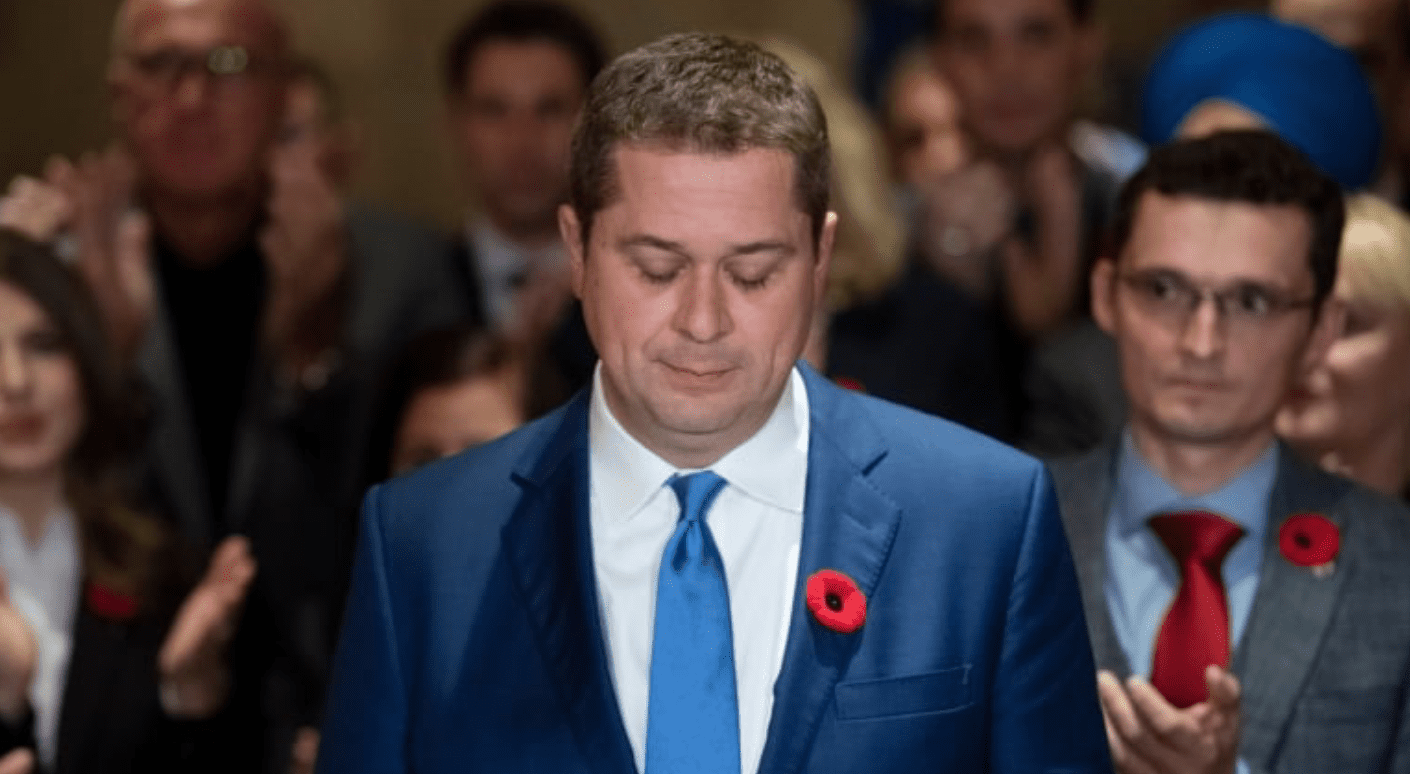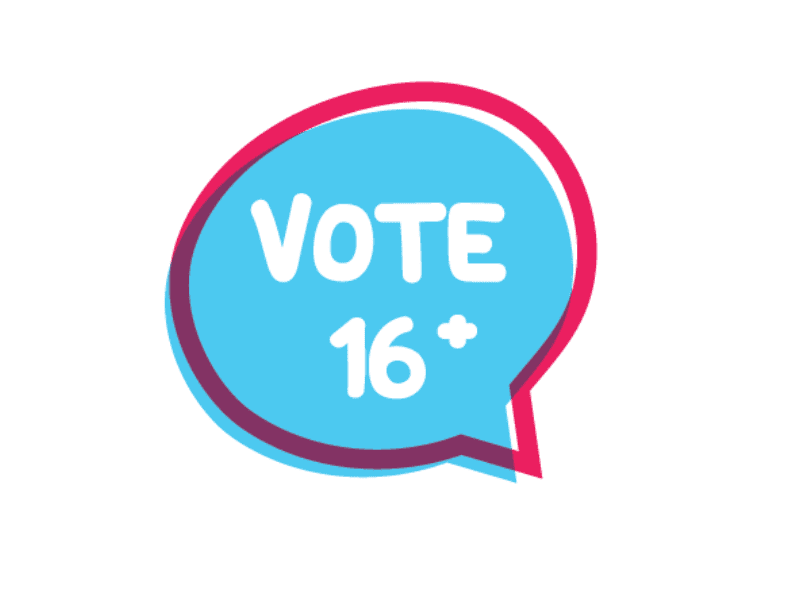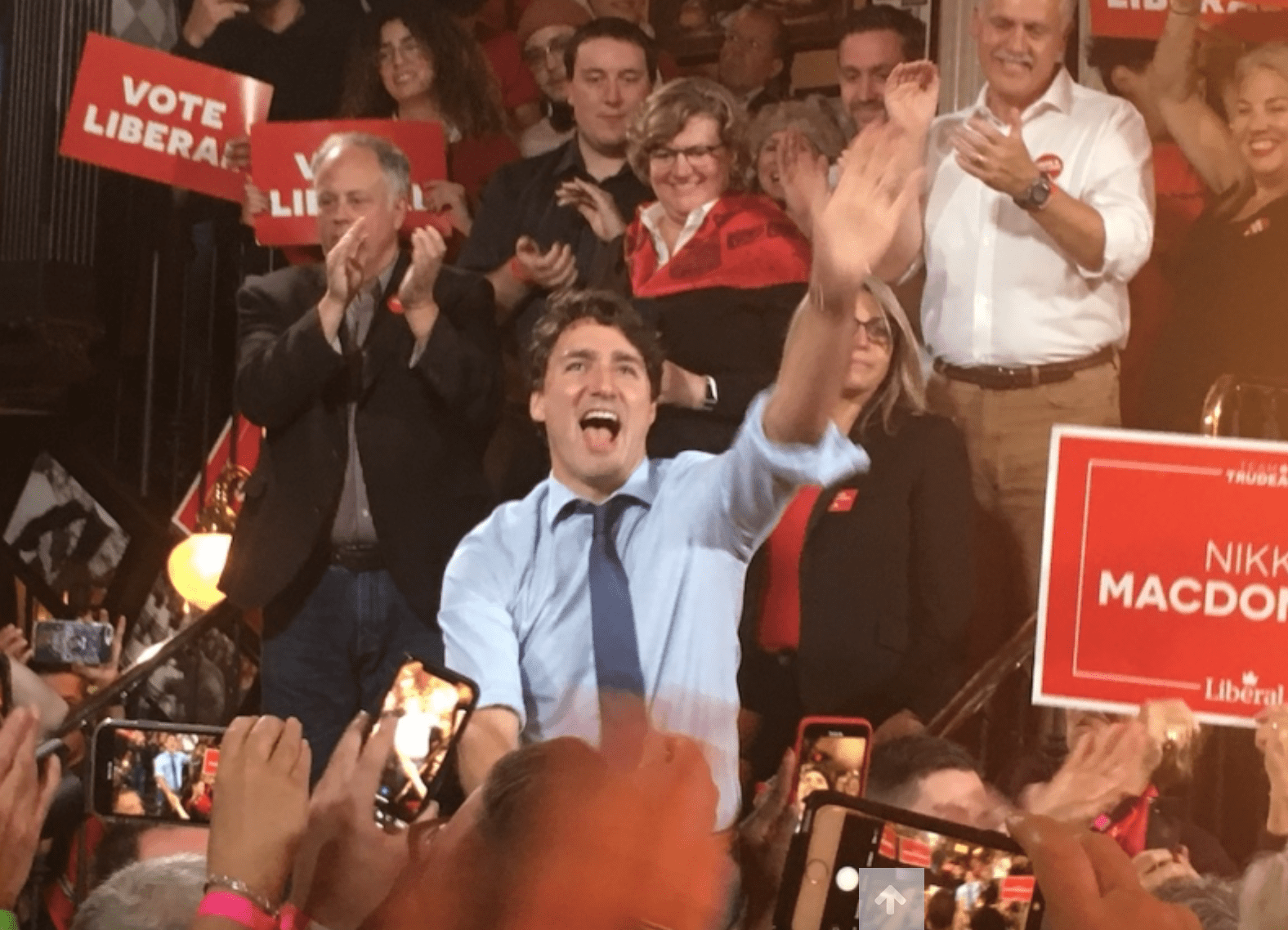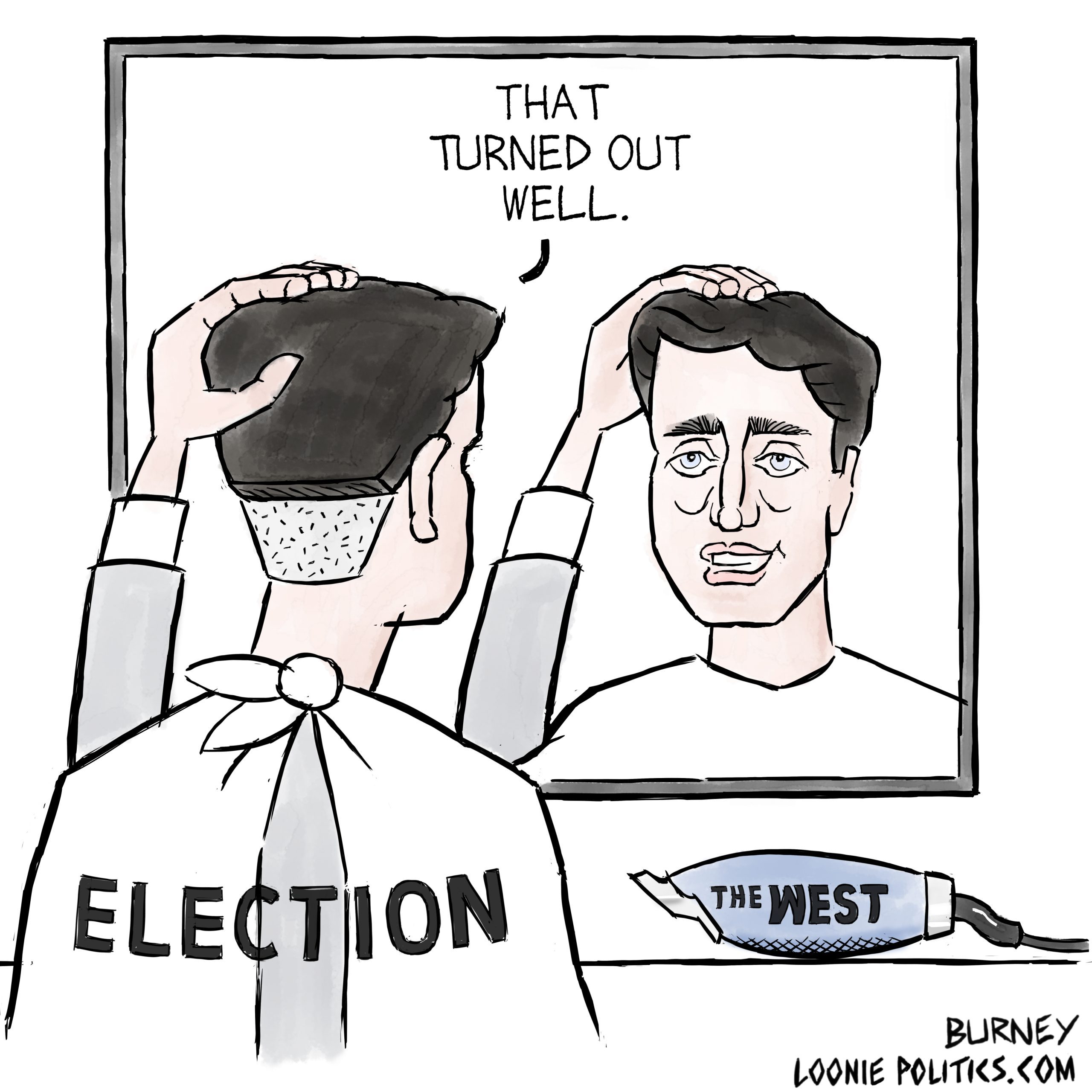We regret to inform you that, due to consolidation of right-wing media in this country, we are unable to talk about any subject other than the milk-drinking-doofus-ness of CPC leader Andrew Scheer.
From here on out, it's 25/8/367 Scheer Man Bad, all day, every day, and twice on Sundays. If Margaret Atwood transforms into a Lovecraftian deity tomorrow and a cult dedicated to her springs up and starts performing eldritch human sacrifices while screaming, "Ia! Ia! Phn'glui mglw'nafh Atwood Toronto wgah-nagl fhtagn!" it's gotta go on Page 2.
Tonight On The National: Andrew Scheer Puts Kids To Bed At 9:42 PM. Rosemary Barton Has The Story.
Because not enough Canadians have tweeted out pictures of themselves making silly faces while pretending to read newspapers, our dedicated and intrepid press corps have been unable to write about Scheer's chuckleheadedness and any other news item at the same time, and will continue to do so until more bailout cash becomes available. Liberal cabinet ministers are being given made-up titles, for example, and the country is moving toward a good old fashioned Canadian unity crisis under Trudeau's watch, but we can't do anything about any of that because the Liberal Party of Canada is God.
And here to assist the Liberal Party of Canada in being God is Conservative Victory, a cross country social media movement that thinks it can unseat Scheer without offering an alternative and without conducting a riding-by-riding campaign, mostly because they know that if they walk into a delegate selection meeting and try to convince party members that [LEADER TO BE DECIDED LATER] has a better shot at a Conservative Victory than an actual human being, they'll be politely smiled at until they stop talking and leave.
Here's a completely insane idea: The CPC is a party that makes voters want to puke their guts out, and nobody is stepping forward to relieve Scheer of a job he's barely clinging to, because the thought of leading this puke-your-guts-out party makes people scream in terror. How about we have a cross country social media movement to address that? Well, because if we did we would soon find that people would rather vote for the Liberals unless that party has destroyed itself to the point where it physically cannot be voted for.
We would also quickly find out the vulgar truth, that all anyone really cares about is sticking it to the Liberals and replacing them, and that it makes no difference to anybody whether Scheer or whoever it is marches in the Pride Parade or not beyond an electoral advantage. Scheer didn't win, so it doesn't matter if whoever we replace him with is worse, because we're not here to waste time building coalitions or play the long game or change the culture. Our politics is one big disorganized game of King Of The Hill, where empty shells of human beings pursue power for its own sake. And everybody, from the voters to the donors to the activists to the backroom hacks to the journalists, are pretty much fine and dandy with all of it. But our journalists aren't going to report on that, because that's a bad look.
Breaking news! The Liberal Party's corrosive influence on Canada has created a situation where nobody can conceive a world without them, or their way of doing politics. If the Liberals will sacrifice everything to take and hold onto power, they must be slavishly copied in that regard, while at the same time insisting that there is a "clear choice" between the two parties. This is why, despite having caved on every single issue, the right will continue to pay lip service, and it's why voters will punish the CPC for actually trying to follow through on a conservative course. Just ask the kindler, gentler Doug Ford. Nope, sorry, that's pulling the curtain back a little too far. Let's all laugh at how Leona Alleslev compared a Pride Parade to a St. Patrick's Day Parade instead!
Truth be told, since all anyone wants is an empty vessel that will fly the CPC to the promised land of power, there's no reason to get rid of Scheer. Is anyone going to do better than him at being an utter nonentity that will say whatever's poured into his brain by backroom people? No, don't say Patrick Brown!
Photo Credit: CBC News
Written by Josh Lieblein












